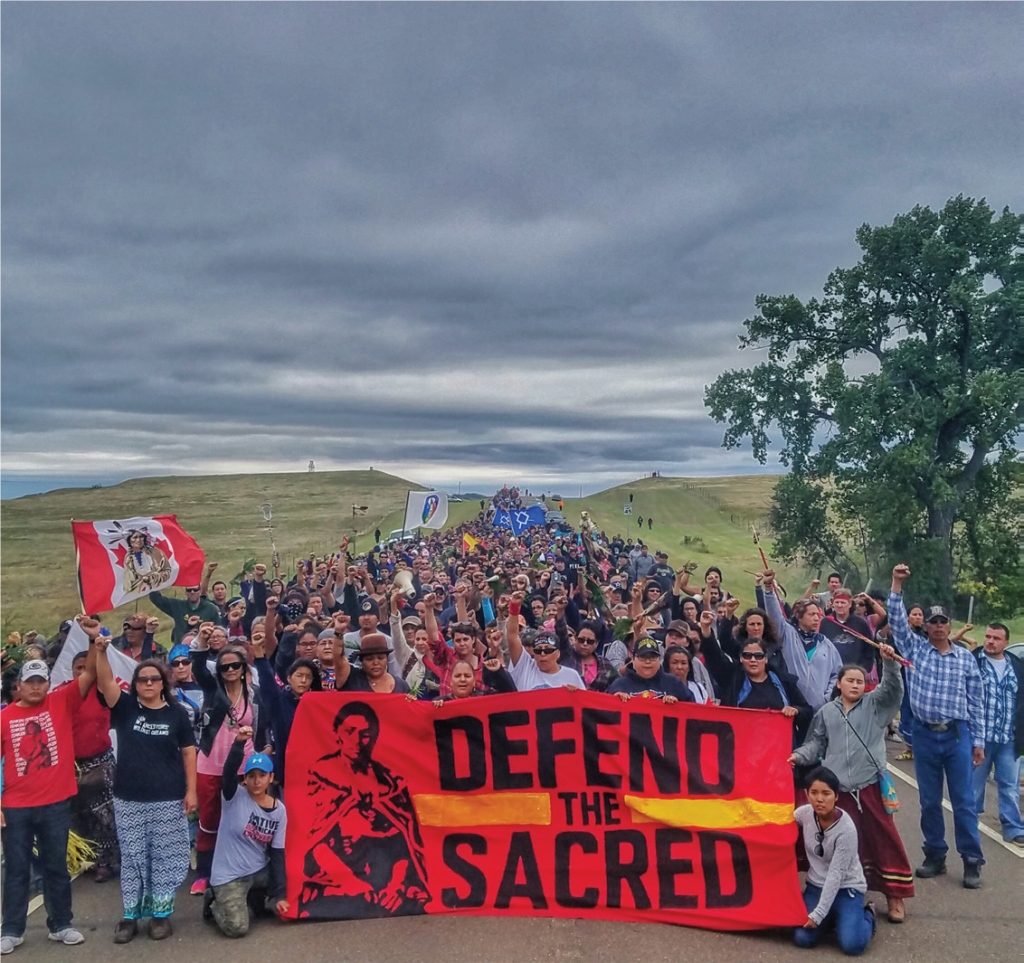At its most recent meeting last week, the Executive Council of the Episcopal Church adopted a resolution calling on government leaders at the national, state and local levels to “de-escalate military and police provocation” at the site of the protests, staged by groups naming themselves Water Protectors, against the Dakota Access Pipeline the territory of the Standing Rock Sioux nation.
From the ENS report:
“Council’s resolution on the Dakota pipeline protest follows support by Presiding Bishop Michael Curry both in words and his presence with the protestors.
The Rev. John Floberg, council member and supervising priest of the Episcopal churches on the North Dakota side of Standing Rock, told the council’s Joint Standing Committee on Advocacy and Networking for Mission Oct. 21 that the way the protest has been conducted has been “the most powerful experience I have had in my 25 years on Standing Rock.” And, yet, he said, he has been shaken by the racist responses that the protest has generated elsewhere in the state.
In addition, the resolution praised the efforts of native nations leaders of the Standing Rock and Cheyenne River Sioux Tribes to promote a “prayerful and nonviolent presence.””
To understand this situation better, we recommend checking out this issue of This Week From Indian Country (pdf download). It offers a timeline of the protests so far, first person accounts, as well as analysis and commentary.
From the Publisher’s letter that opens the magazine:
“What we know today can help us prepare for the future. The eventual outcomes of the monumental struggle over the construction of the pipeline cannot be predicted. Yet we know what issues are at stake; we can identify correlations between human rights and U.S. law, sovereignty and dispossession, politics and power, dehumanization and domination. Much hangs in the balance for the First Peoples of this continent. A strong case could be made that as we go, the world goes. Respect for our free and independent existence on so many fronts depends on the freedom and independence of our neighbors.
Indian Country Today Media Network has followed the story of Dakota Access closely ever since the Standing Rock Sioux raised objections to it. This magazine, a special issue devoted to the DAPL movement, is the first single-subject, event-driven edition in our history. It represents only a portion of the hundreds of hours of reporting, writing and editing that the editorial team has devoted to informing our audience of millions about actions on the scene, legal battles, and breaking decisions. Our goal with this publication was to capture the arc and breadth of a story that is still unfolding, and to memorialize the astonishing efforts of today’s Native warriors.”
image from “This Week from Indian Country”

